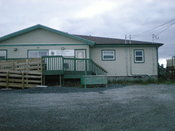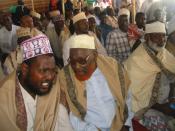As the history of the world continues, gaps between the generations of all nationalities will continue to be made. We get a first hand example of this everyday, right here in the U.S. In today's society, it is very difficult to find a child that shares the same interests as their parents. Whether it is taste in music and fashion, religious understanding, or positions on our country's issues, parents and children do not share many common beliefs. The same goes for the tribal elders and the tribal youth in Margaret Craven's novel, I Heard The Owl Call My Name. The cultural differences between the elders and the youth increased in many ways. Unlike the elders, the children no longer have a grasp on the tribal language, are branching away from the tribe by going to white schools and marrying into white families, and have a poor understanding of the tribes customs and culture as a whole.
As time has gone on, English has become a universal language. This fact does not exclude the Indian tribe in Craven's novel and is one example of the cultural differences between the children and the elders of the tribe. Everyone in the tribe speaks English, but it is only the elders who still have a knowledge of the tribes native tongue. "It is always so when the young come back from the school. My people are proud of them, and resent them. They come from a far country. The speak English all the time and forget the language of Kwákwala.." (Craven, 61) This is also shown when the elders begin the ancient burial ceremony after Mark finishes the Christian portion of the funeral. The elders began an ancient prayer and when Mark asks about it Jim explains that the young did not know...


